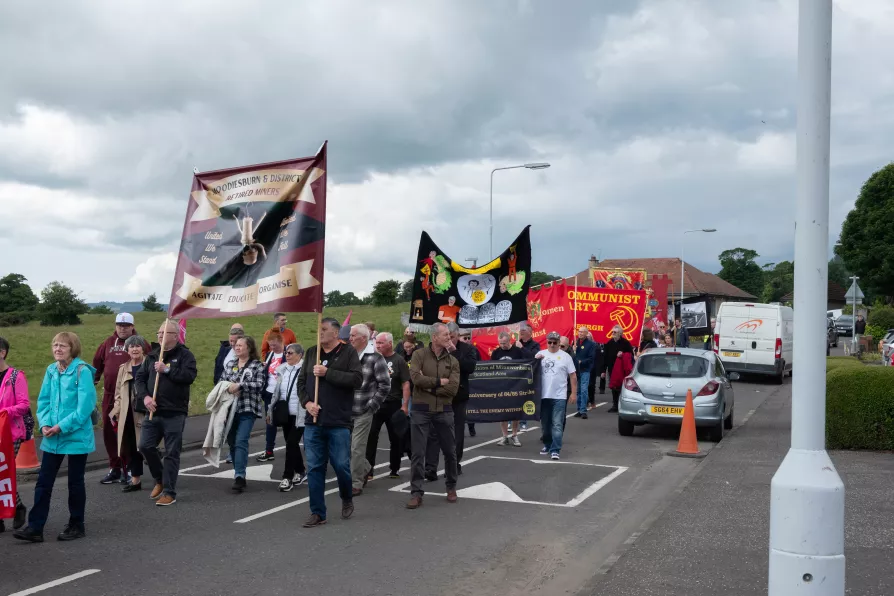Scotland's workers remember the great strike

 Balingry Miners March
[Aiden Campbell]
Balingry Miners March
[Aiden Campbell]
HUNDREDS of workers from across Scotland descended on the Fife pit town of Ballingry on Saturday to mark the 40th anniversary of the great miners’ strike.
With a pipe band leading the way, more than a dozen trade union and colliery banners were proudly marched through the town to a rally in Lochore Meadows Country Park above the workings of the Mary colliery, which once sustained local jobs and industry.
Before returning to the Miners’ Welfare Institute for food, music and an opportunity to share recollections, the crowd heard from speakers who had been there, some who had since fought for justice for mining communities and others who followed in their trade unionist footsteps.
Similar stories

In the second extract from her new memoir, former NUM headquarters staffer HILARY CAVE recounts the bitter struggle to provide sustenance for strikers’ families, and the invidious role of David Willetts – now in the House of Lords

In the first of four extracts from her new memoir, former NUM headquarters staff HILARY CAVE recalls challenging police intimidation during the miners’ strike, exposing how the full machinery of state was deployed against the working class












